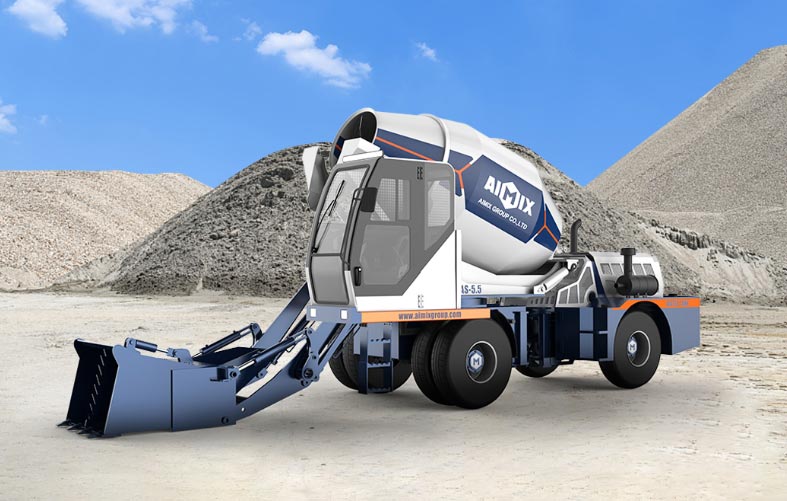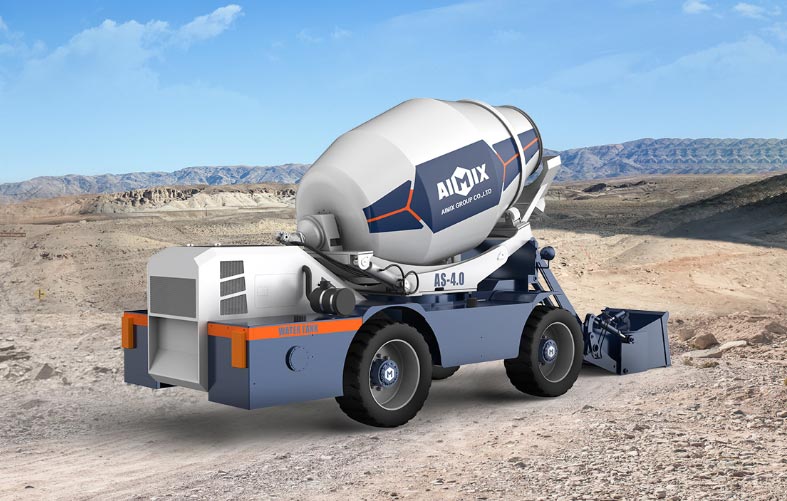Purchasing a self-loading concrete mixer is a significant investment that requires careful consideration. Whether you’re expanding your business or starting a new project, selecting the right mixer can have a lasting impact on your operations. This guide will explore the most crucial factors to keep in mind when purchasing a concrete self loading mixer to ensure reliability, efficiency, and long-term cost-effectiveness.
1. Assessing Your Capacity Needs
Before making any purchase, you should assess your capacity requirements. Self-loading concrete mixers come in various sizes, typically ranging from 500 liters to larger models designed to handle more substantial projects. The key to choosing the right model is to evaluate your current and future project needs. For smaller, short-term projects, a 500L model may suffice. However, for long-term growth and large-scale operations, opting for a larger capacity mixer will prevent the need for premature upgrades.
Consider the following:
- Current vs. Future Needs: Determine if you need the mixer to handle just small to medium projects or if it should be capable of scaling with your business.
- Growth Potential: A slightly larger mixer can accommodate unforeseen business expansion, allowing you to tackle more demanding jobs without having to replace the equipment.
This forward-thinking approach will help you avoid unnecessary replacement costs and disruptions to your operations down the line.

2. Prioritizing Operational Efficiency
The operational efficiency of a self-loading concrete mixer is a critical factor in determining its overall cost-effectiveness. A highly efficient machine will reduce fuel consumption, decrease downtime, and enhance productivity—ultimately boosting your business’s profitability.
Key Efficiency Factors to Consider:
- Fuel Consumption: Energy-efficient models consume less fuel, reducing operational costs in the long run. Always check the fuel efficiency ratings of the mixers you are considering.
- Workload Capacity: The speed at which a concrete mixer can load, mix, and discharge material can directly impact your daily output. Choose a self loading concrete mixer for sale in Nigeria that can perform all tasks efficiently to avoid delays and bottlenecks.
- Maintenance Needs: Machines with fewer moving parts or robust systems tend to need less maintenance, saving on repair costs and preventing unplanned stoppages. Look for models that offer straightforward maintenance and have parts readily available.
The more efficient your equipment, the more smoothly your operations will run, which ultimately supports a higher return on investment.

3. Quality Certifications and Manufacturer Reputation
When purchasing a self-loading concrete mixer, ensure that the equipment meets local and international quality standards. Quality certifications, such as ISO 9001 or SONCAP, can offer peace of mind that the mixer has undergone rigorous testing and adheres to global industry standards.
Why Certifications Matter:
- Compliance: Verify that the mixer complies with local construction regulations and standards to avoid legal issues down the road.
- Quality Assurance: Certifications guarantee the equipment’s reliability, longevity, and safety features, ensuring that it will perform as expected in demanding environments.
Additionally, the reputation of the manufacturer plays a pivotal role in your decision. Established manufacturers with a proven track record are more likely to provide robust after-sales support, operator training, and maintenance services. While newer companies might offer competitive price, the reliability and customer service of an experienced brand can save you time, money, and frustration.
What to Look for in Manufacturers:
- Experience: Companies with decades of experience in the industry are often more reliable and have a deeper understanding of customer needs.
- Customer Support: Top-tier AIMIX manufacturer offers excellent after-sales service, including operator training, technical support, and a network of repair services.
- Customer Reviews: Request references from previous clients to gauge the quality of both the equipment and customer service.
4. Pricing: Don’t Compromise on Quality
While it’s tempting to choose the cheapest option available, focusing solely on price may lead to regrettable decisions. A low-cost mixer that lacks durability or operational efficiency can result in frequent repairs, higher operational costs, and potential project delays. A more expensive, high-quality mixer, although initially costing more, will pay off in the long run with increased uptime and reduced operational expenses.
Price vs. Value:
- Long-Term Costs: Consider the total cost of ownership, which includes fuel consumption, maintenance, and potential repairs.
- Reliability: Investing in a trusted brand with superior technology ensures minimal downtime, fewer breakdowns, and a longer-lasting machine.
Once you’ve narrowed down your options to reputable manufacturers with reliable products, requesting quotes from several companies will help you compare prices and find the best deal. Ultimately, making a well-informed decision will save you more money and hassle in the future. Find a best mixer here: https://aimixconcretesolution.com/self-loading-concrete-mixer/kenya/.
Conclusion
Purchasing a self-loading concrete mixer is a long-term investment that requires careful analysis of your business’s needs, equipment efficiency, quality standards, and pricing. By considering these essential factors, you can ensure that the equipment you invest in will support your operations effectively, providing the reliability, cost-efficiency, and scalability needed for sustained business growth.